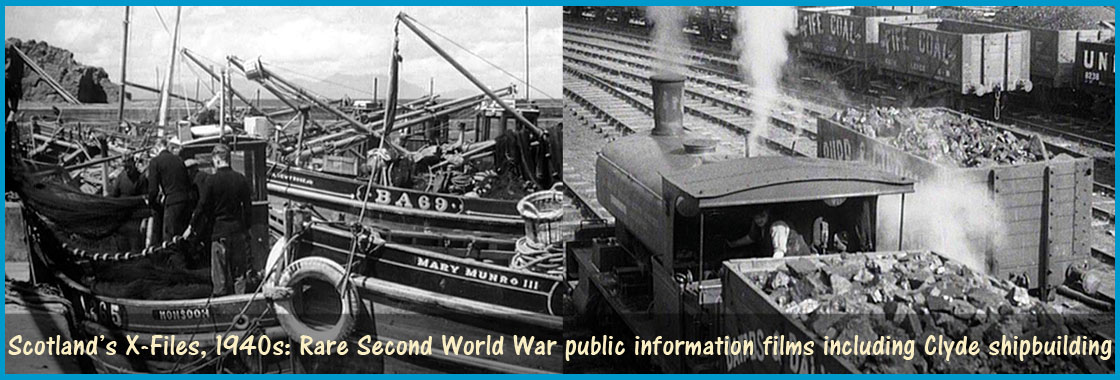Scotland's X-Files - Second World War Propaganda
The establishment of the British Documentary Movement in the 1930s, led by John Grierson at the GPO Film Unit showed the importance of film for communicating with the general public for whom a weekly visit to the cinema was a "must" for many families.
As Britain entered the Second World War, film was an essential way of maintaining public morale and keeping the public informed about the progress in the war and The GPO Film Unit became the Crown Film Unit in 1940. Many other commercial film units including The Shell Film Unit, Paul Rotha Productions and BP turned their cameras to the war effort and countless "propaganda" films were produced for cinema release.
Scotland's X-Files is a compilation of rare films made in Scotland, culled from the Imperial War Museums Film Archives, presented with subtitles, and on DVD for the very first time.
Scotland Speaks (1940). The role of Scotland and its industries in supporting the war effort, assuring soldiers that they will be returning to a free Scotland. Special Despatch (1941). A fictional "day in the life" of a Royal Corps of Signals Despatch rider, introduced by one of the riders about to deliver documents to Scotland. Fighting Fields (1941). Food production in wartime Scotland. The effort to expand agriculture now that the ships and harbours are otherwise employed. A Good Landfall (1941). The Salvation Army help a sailor returning by train from Edinburgh to his ship obtain news of his young daughter who has been hospitalised. Give Us More Ships (1942). Actor Leslie Banks ("Went the Day Well") appeals for "more ships - to win this war", reading Gilbert Frankau's poem to music specially composed by George Posford played by Geraldo with his Concert Orchestra. Strangers (1942). Polish soldiers are posted to a camp in Scotland after the fall of France, and put their hearts into the war effort. Transatlantic Airport (1944). How Prestwick Airport became a meeting point of world air routes during the Second World War. Clyde-Built (1944). Shipbuilding on the Clyde showing the processes involved and emphasing the importance of speed, efficiency and reliability in ship construction. Pre-fabrication and welding, developed in the United States, are also discussed.
